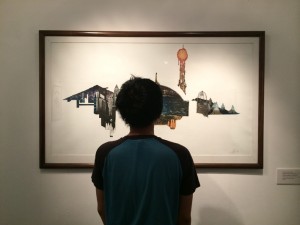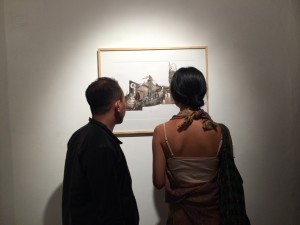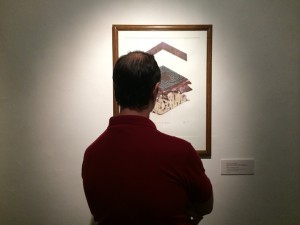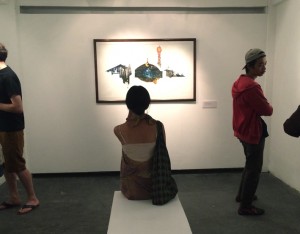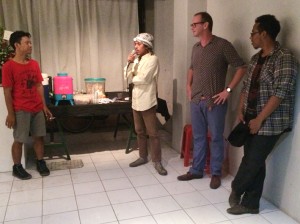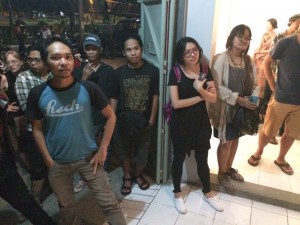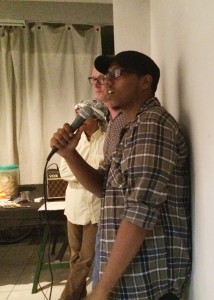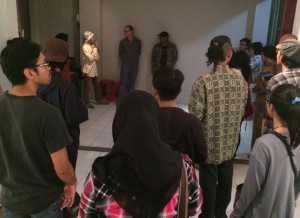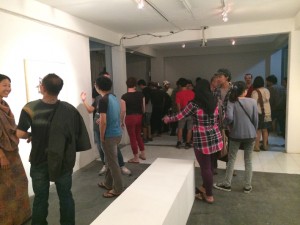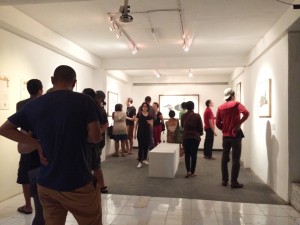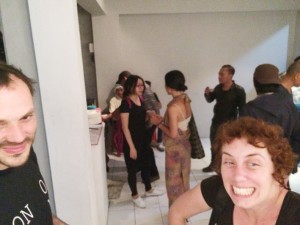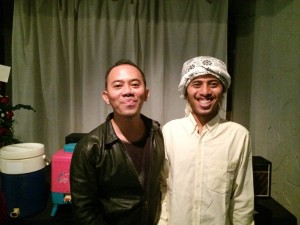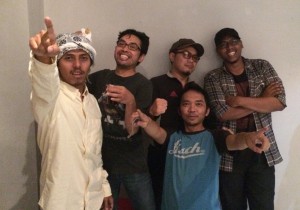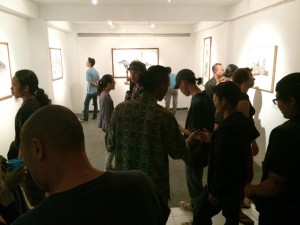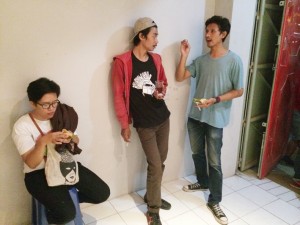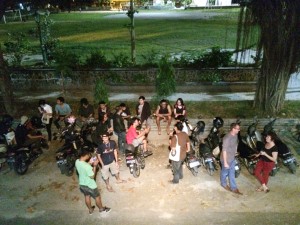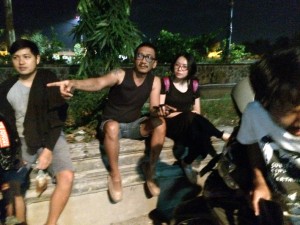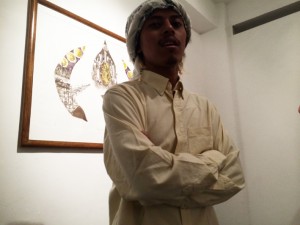WAYFARER: Mohammad Fatchi Baradja
WAYFARER
Mochammad Fatchi Baradja
Opens Saturday 8 March, 7pm
Artist talk Tuesday 11 March, 3pm
Exhibtion 8 – 29 March, 2014
Krack! Yogyakarta
“Only through transcendental imagination can humanity give depth to its religious life”.
-Yasraf Amir Piliang, Bayang-Banyang Tuhan : Agama dan Imajinasi
The widening gap between religious doctrine and secular life is an issue throughout the contemporary world. In this exhibition Mohammad Fatchi Baradja explores the anxieties he faces in negotiating the demands of his faith and daily life.
Through a series of aquatint etchings that juxtapose the signifiers of Islam against images of the secular world, he takes us on a journey through a twilight world that is beautiful but conflicted, where human figures are half-formed and ghostlike, threatened by high seas and overshadowed by towering institutional structures.
One of the things we want to do at Krack is exhibit work that engages critically with events and developments in this region. Religion is something that affects us all and is something we all need to be talking about. Fatchi’s work talks about the dilemma he faces between on one hand feeling that the doctrines of Islam cannot arbitrarily be interpreted to suit individual needs, but on the other feeling that Islam, like all religions, must evolve in order to remain relevant in the global era.
Every day in western media we read stories that equate Islam with terrorism and extremism. Perhaps because these are the stories that get the most clicks or sell the most papers. But all these stories really do is drive a barrier of defensive silence between ‘them’ and ‘us’. In my opinion a much more important and productive discussion to have is the one that Fatchi raises through these works.
Mochammad Fatchi Baradja is a recent graduate from the Institute of Technology, Bandung (ITB). These images are intaglio prints made from multiple brass plates to create one image. He uses the technique of aquatint and permeable ground to open up the notches on the surface of the plate. Applying ink is done with viscosity and a`la Poupée techniques to achieve the desired colours.

